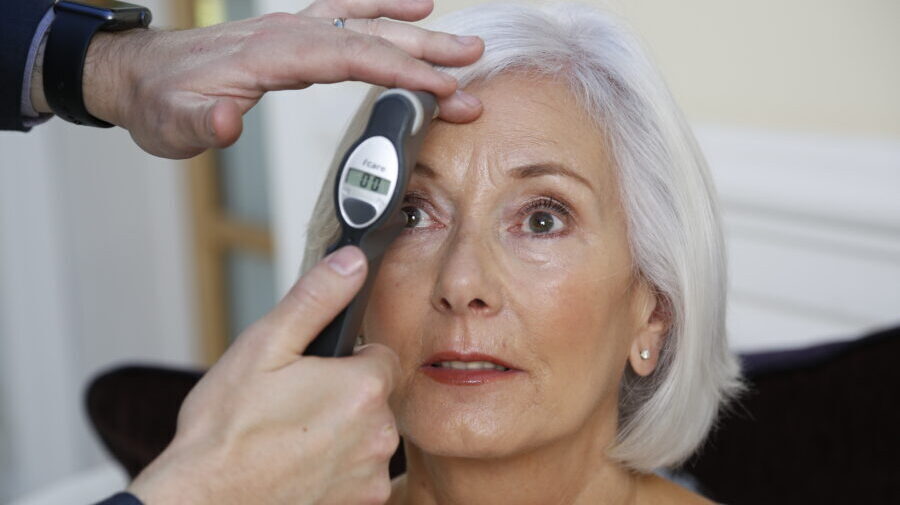Blog post
How Often do I Need an Eye Test?

Matthew Burford BSc(Hons) Optometry MCOptom - Domiciliary Optician and Professional Services Manager at OutsideClinic
3 minute read time
Prevention and early detection are key to maintaining optimal eye health which is why it is generally recommended to get your eyes tested at least once every two years.
However, individual circumstances can vary, and some people may require more frequent eye tests.
How does age affect the frequency of eye tests?
As we age, the risk of developing certain eye conditions increases.
Individuals may need more frequent tests as they get older to monitor age-related changes, such as cataracts or age-related macular degeneration.
Your optometrist will consider your age, medical history and individual eye health to provide tailored advice regarding the frequency of your eye tests.

What are the benefits of regular eye tests?
Regular eye tests offer a range of benefits beyond just checking your vision.
They provide an opportunity to detect and address eye conditions early on, even before you notice any symptoms.
By identifying issues like glaucoma, cataracts, or macular degeneration in their early stages, you can receive timely treatment and prevent further vision loss.
Additionally, regular eye tests help optimise your vision, ensuring you have the best visual acuity for daily activities and tasks.

What should I do if I’ve been tested recently, but I have noticed changes in my eyesight?
If you have noticed changes in your eyesight since your last eye test, then it’s a good idea to get checked out by a professional. There may be an underlying issue, or you may need an updated prescription.
In many cases, you will be eligible for an NHS-funded eye test if you have a concern with your eyesight.

What's the difference between eye tests and glasses/contact lens check-ups?
An eye examination is more than just a glasses or contact lens check-up, although this is part of it.
An eye test involves ocular health checks, as well as ensuring you are maximising your vision for the tasks that you like to do.
And with a home visit, we can see the environment you do these tasks in and offer appropriate advice.

Are free or private home eye tests available near me?
OutsideClinic offers accessible and comprehensive eye tests conducted in the comfort of your own home. Our eye specialists are based all over the UK.
NHS funded at-home eye tests are available for eligible individuals who find it difficult to leave their home.
Check your eligibility for a sight test at home
If you would prefer the convenience of an at-home eye test but you don't qualify for NHS funding, private home eye tests are available for £60.


By Matthew Burford BSc(Hons) Optometry MCOptom - Domiciliary Optician and Professional Services Manager at OutsideClinic
Matthew graduated from Aston University in 2004 with a degree in Optometry.



